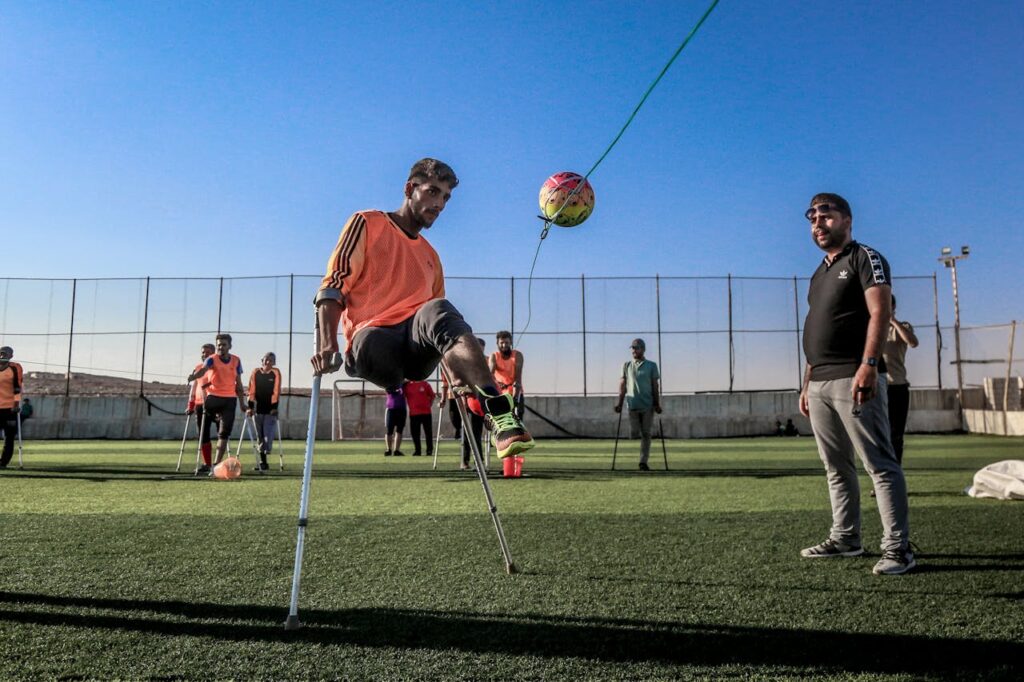IITHE Level 5 Diploma in Special Needs Education

Overview
The IITHE Level 5 Diploma in Special Needs Education is designed to equip learners with advanced knowledge and skills necessary for working with children and adults with special educational needs and disabilities (SEND). This qualification emphasizes inclusive education practices, strategies for addressing diverse learning needs, and methods for supporting individuals with physical, emotional, behavioral, and cognitive challenges.
Learners will develop a deep understanding of the complexities of special needs education and learn practical techniques to create an inclusive, supportive learning environment. Graduates will be prepared to pursue careers in teaching, support work, or further education within the field of special needs education.
Entry Requirements:
- Age Requirement: Learners must be at least 18 years old.
- Educational Qualifications: A Level 4 Diploma in Special Needs Education or a related field or equivalent qualification.
- Work Experience (optional): Mature learners (21 years and older) with relevant work experience in special needs education may apply.
- English Language Requirements: Learners whose first language is not English must provide proof of English proficiency.
Qualification Structure:
The IITHE Level 5 Diploma in Special Needs Education consists of 12 mandatory units that provide a comprehensive understanding of the field. Learners must complete a total of 120 credits to achieve this qualification.
Mandatory Units (12 Units):
- Understanding Special Educational Needs and Disabilities (10 credits)
- Introduction to the different types of disabilities and special needs, and how to support learners with diverse challenges.
- Theories of Inclusive Education (10 credits)
- Examines the principles and models of inclusive education, focusing on ways to create inclusive learning environments.
- Assessment and Identification of Special Needs (10 credits)
- Teaches methods for assessing and identifying the special needs of learners, including screening and diagnostic tools.
- Curriculum Development for Special Needs Education (10 credits)
- Focuses on designing and adapting curricula to meet the individual needs of learners with disabilities.
- Supporting Learners with Communication Difficulties (10 credits)
- Covers strategies for working with individuals with speech, language, and communication needs.
- Behavior Management in Special Needs Education (10 credits)
- Explores approaches to managing challenging behavior in learners with special educational needs.
- Working with Families and Caregivers (10 credits)
- Highlights the importance of family involvement in supporting children with special needs, and effective communication with caregivers.
- Legal and Ethical Considerations in Special Needs Education (10 credits)
- Provides an overview of the legal frameworks and ethical guidelines for working with individuals with special educational needs.
- Learning Disabilities and Mental Health (10 credits)
- Focuses on understanding the relationship between learning disabilities and mental health issues, and how to provide support.
- Early Childhood Intervention for Special Needs (10 credits)
- Examines early intervention strategies to support young children with developmental delays or disabilities.
- Assistive Technology in Special Needs Education (10 credits)
- Introduces tools and technologies that can aid in the learning process for individuals with disabilities.
- Research Project in Special Needs Education (10 credits)
- A practical research project that requires learners to apply their knowledge to a specific issue or challenge in special needs education.
Duration and Delivery:
The IITHE Level 5 Diploma in Special Needs Education is designed for flexible study and can be completed through various learning methods.
- Full-time Study: Typically completed within 18-24 months.
- Part-time Study: Duration can be extended for those balancing other commitments.
- Blended Learning: Combines in-person lectures with online resources and self-paced study.
- Distance Learning: Learners can complete the course remotely with the support of digital materials and virtual communication with instructors.
Assessment and Verification:
- Internal Assessment: Learners are assessed through a variety of methods, including written assignments, case studies, presentations, and practical projects. Each unit has specific learning outcomes and criteria that must be met.
- Practical Components: Some units require practical assessments, including observation of teaching or support work with individuals with special needs.
- External Verification: Assessments are externally verified to ensure they meet academic and industry standards.
To pass the qualification, learners must achieve all learning outcomes for each unit. This qualification is criterion-referenced, meaning assessments are based on predefined criteria and not compared to the performance of other learners.
Progression Opportunities:
Graduates of the IITHE Level 5 Diploma in Special Needs Education will have several opportunities for further study or career advancement, including:
- Further Study: Progression to Level 6 qualifications in Special Needs Education, inclusive education, or related fields. Learners may also choose to pursue a Bachelor’s degree in Special Education, Early Childhood Education, or Psychology.
- University Progression: Graduates may be eligible for direct entry into the second or final year of a Bachelor’s degree program in education or a related field.
- Professional Certification: Opportunities to pursue additional professional certifications related to special education, behavior management, or disability support.
- Career Opportunities: The diploma prepares graduates for various roles in the education and social care sectors, including:
- Special Education Teacher
- Learning Support Assistant
- Special Needs Coordinator (SENCO)
- Early Intervention Specialist
- Disability Support Worker
- Inclusion Officer
The IITHE Level 5 Diploma in Special Needs Education provides the essential skills and knowledge for individuals who want to make a positive difference in the lives of children and adults with special educational needs.
